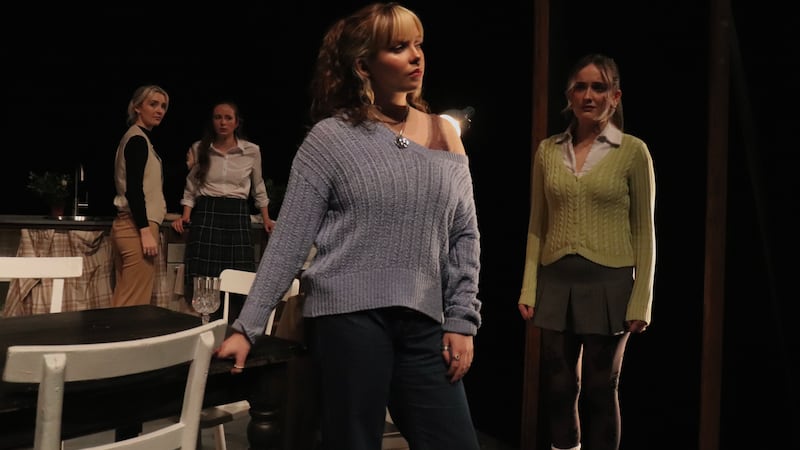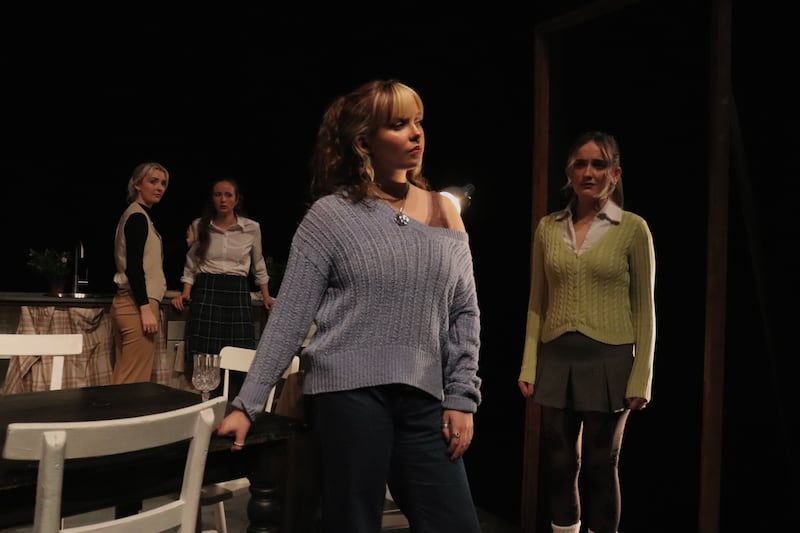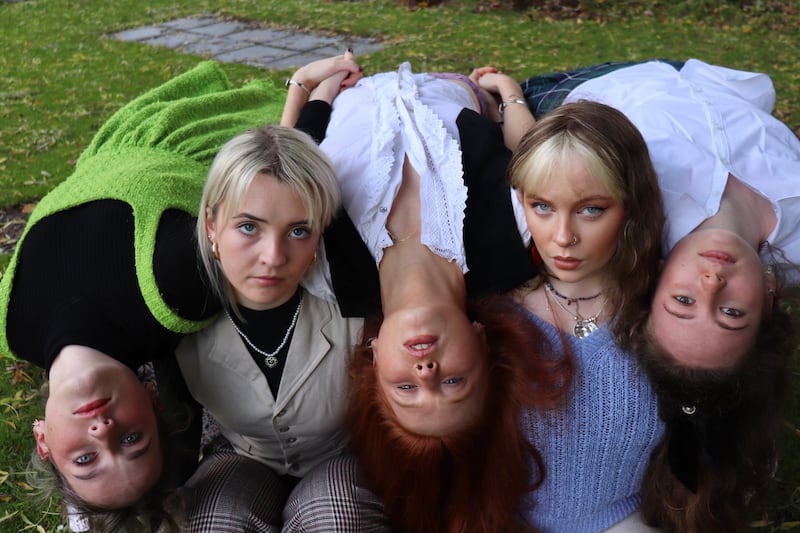“Family” is a word that seems to have limitless definitions which is something Beth Strahan and Ide Simpson’s debut play Cailíní truly encapsulates.
Similar to Brian Friel’s Dancing at Lughnasa, Cailíní tells the tale of a family’s world on the brink of change.
First seen at Dublin’s Samuel Beckett Theatre last year, the performance centres around the reunion of the five Mahon sisters who return to their family home at the behest of their sister Una (Simpson) with news that their alcoholic father is seriously ill.
There’s the eldest sister Katherine (Lily Kate Hearns), who spent most of her adolescence raising her younger siblings and now works in London. Then Una, who appears to be the only sibling who has stayed in the house by choice or lack thereof, depending on your point of view. She’s followed by Clodagh (Megan Doherty) who arrives with her boyfriend Eamonn (Sean McDermott); he is harbouring his own secret that only adds to the already uncomfortable sense of tension.
Kneecap: ‘It’s easy for middle class people to tell us to boycott festivals’ - Belfast Irish language hip-hop trio on balancing principles with profits as they prepare to release debut album Fine Art
Kneecap: ‘DUP should thank us for keeping them relevant’ - Belfast Irish language hip-hop trio on courting controversy en route to release of debut album Fine Art
Then there’s Annie (Eabha Hayes), who is still at school although hopes to get into Trinity after she completes her leaving cert. And finally, we meet older half-sister Mairead (Juliet Hill). She is currently studying in Paris, which adds a subtext of class which, coupled with the four ‘full’ sisters’ cold attitude towards her, creates a distinctive divide.
The 80-minute drama is an absorbing character study which explores the concepts of responsibility, the past haunting the present and the fragility of relationships. This leaves the audience questioning whether blood really is thicker than water.

Between the tense jaw dropping revelations and well-timed humour it’s very much a dark comedy that will have you laughing one minute and cringing the next, which is a testament to the strength of the performances given by the six-strong cast.
However, the performance also explores themes of domesticated femininity and the idea of the ‘flawed’ woman which is portrayed particularly well through Simpson’s Una. Initially coming across as a strong, independent, matriarchal figure, the audience quickly realise it’s a façade, as we watch her confident mask slowly slip as the play’s drama unfolds.
The often tense and heightened conversations taking place are complemented nicely by Emmett Brady Dunne’s intimate kitchen setting which despite becoming a common setting in theatre felt fresh and unique due to the addition of a small garden to one side with steps, shrubbery and wooden bench.
Conor Bustos’s lighting design and Hayden Kline’s original score help emphasise the emotions of the moment, making it just as strong visually and technically as it is creatively.
Although the play is dealing with heavy themes it doesn’t feel rushed or superficial. It is well paced and detailed in its story.
Written as a final year degree project at Trinity College Dublin, the partnership between Strahan and Simpson is a strong one that I hope we see more of in the future.
Ultimately Cailíní is cool, dark and edgy – the type of performance that has you gripped from the outset and that you will be thinking about long after you leave the theatre.








